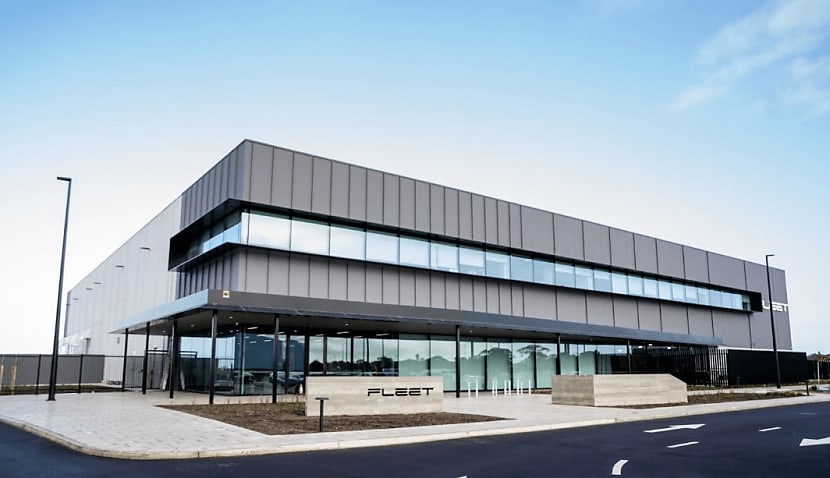Fleet Space’s 5,300-square metre facility boosts Australia’s advanced manufacturing capacity, enabling the production of thousands of next-generation geophysical sensors and hundreds of satellites annually.
By vertically integrating its business operations through supply chain, design, manufacturing, operations, engineering and research and development within a state-of-the-art facility, the company is envisioned to scale up the manufacturing of space, climate and AI-powered technologies needed for the next era of exploration on Earth and beyond.
“Ten years ago, Fleet Space began the journey of building next-gen exploration technologies – powered by the latest advances in space, agile geoscience, and AI – to accelerate the energy transition and support future missions to the moon, Mars, and beyond,” said Flavia Tata Nardini, CEO and co-founder of Fleet Space.
“Today we are proud to open our new global headquarters and space tech hyperfactory to scale our global platform, ExoSphere, to fuel the next leap in science, technology and human exploration – future-proofing Australia’s leadership in the development of future industries.”
Fleet Space’s GHQ and space-tech hyperfactory will support the expansion of its global, AI-powered exploration platform, ExoSphere, deployed by the world’s largest mining and resource companies like Rio Tinto, Barrick, Gold Fields, and Maaden to image mineral systems in real-time across five continents.
These new facilities will also enable Fleet Space to advance its off-world missions over the coming years, including deployment of the lunar variant of its ExoSphere technology, SPIDER, for Firefly Aerospace’s Blue Ghost Mission 2 and survey the near-Earth asteroid, Apophis, when it comes within 32,000 kilometres of Earth’s surface in 2029.
“The scale, speed and capacity of this vertically integrated facility will equip explorers on Earth and beyond with the agile geoscience solutions needed to move from insight to action, faster – a critical step in supporting the clean energy transition and near-term ambitions to build permanent research stations beyond our planet,” said Matt Pearson, co-founder and chief exploration officer of Fleet Space.
“Our 10-year anniversary is more than a celebration, it is a promise of what’s to come. Fleet Space was founded a decade ago on the belief that Australia could shape the future of exploration, and today we are delivering the agile geoscience technologies that are accelerating discovery on Earth, the moon and Mars.”
The grand opening of GHQ and Fleet Space’s advanced manufacturing facility was Fleet Space’s inaugural Horizon Global Summit, convening global leaders in space, resources and technology to chart the future of exploration on Earth and beyond.
The summit welcomed celebrated explorer Tim Jarvis AM and visionaries from BHP, Maaden, Koloma, Odyssey Space, F1 Academy, Robinson Aerospace, and Deadly Science, among many others, zooming in on key challenges and opportunities for exploration today and what’s around the corner tomorrow.
Alongside global space leaders and leading research institutes – such as NASA, Stanford University’s Mineral-X and MIT Media Lab’s Space Exploration Initiative – Fleet Space’s GHQ will also scale its ability to advance the science and technology needed to unlock the next chapter of exploration missions on Earth, the moon, Mars, and beyond.
From rapid subsurface sensing on the moon, 3D imaging Earth’s largest lava tubes, building geophysics deployable with TRIDENT-like drills in lunar and Martian environments or surveying the near-Earth asteroid, Apophis, Fleet Space is building a foundation for a sustainable space economy from the heart of South Australia.
Closing a $150 million Series D funding round with a valuation of $800 million, Fleet Space has grown from a local start-up to a global leader in space and mineral exploration technologies within a decade.
Its ExoSphere platform, powered by space technology, agile geoscience and AI, is already used by over 50 of the world’s largest mining companies to accelerate the discovery of energy transition minerals while reducing environmental impact at scale.
With the opening of GHQ and launch of its inaugural Horizon Global Summit, Fleet Space is setting a bold agenda for the next century of exploration on Earth, the moon, and Mars.

